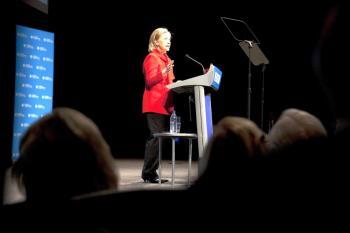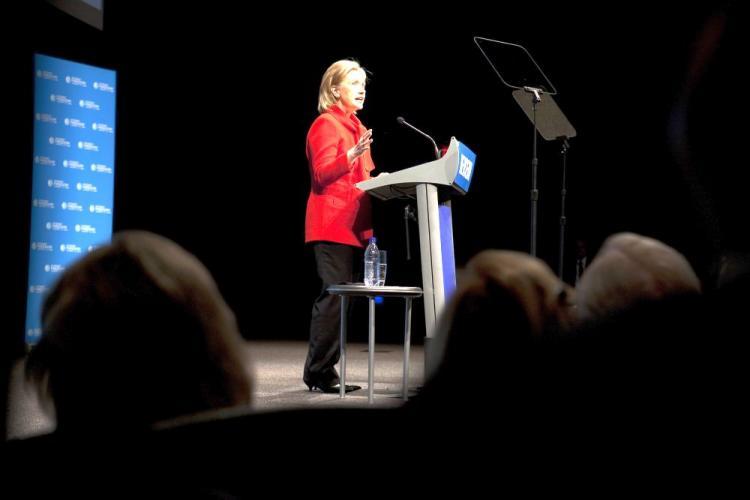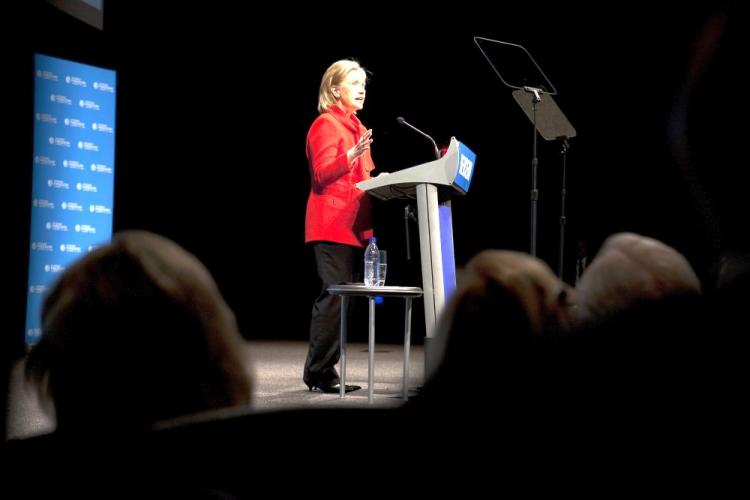Clinton Calls for ‘Condemnation’ of Countries Involved in Cyber Attacks
Secretary of State Hillary Clinton gives major speech on Internet freedom in Washington, D.C.

U.S. Secretary of State Hillary Clinton gives a speech on Internet freedom at the Newseum on January 21, 2010 in Washington, D.C. Joshua Roberts/Getty Images
|Updated:
Joshua Philipp is senior investigative reporter and host of “Crossroads” at The Epoch Times. As an award-winning journalist and documentary filmmaker, his works include “The Real Story of January 6” (2022), “The Final War: The 100 Year Plot to Defeat America” (2022), and “Tracking Down the Origin of Wuhan Coronavirus” (2020).
Author’s Selected Articles






